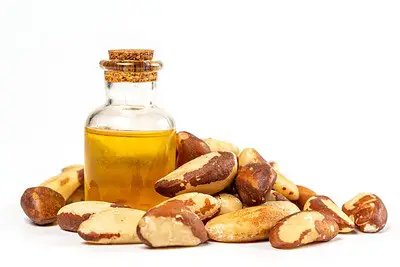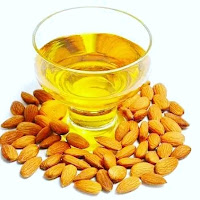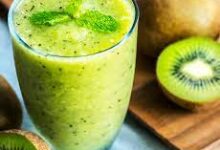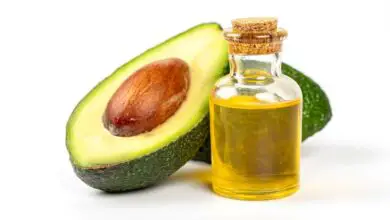Does almond oil clog pores? Is it Safe for Skin?

Almond oil is popular for its skin benefits, but some people worry that it can clog pores or hair follicles, how true is this? Is this a problem, and if so, is there a way to avoid it?
Like many other oils, they can be absorbed into the skin and cause problems if it’s overused or applied to areas of the skin that are already inflamed. Also, people with sensitive skin may be especially prone to these problems by using it but it’s generally considered non-comedogenic.
What is Almond oil?
A light and easily absorbed oil that has been used for centuries for beauty treatments. It is a natural source of vitamin E and monounsaturated fats. It is also rich in copper, phosphorus and magnesium.
A lot of beauty products contain this oil as it has many benefits for the skin and hair. It is a natural way to get rid of stretch marks and protect your skin from sunburn and free radicals. It will surprise you to know it has made its way to the kitchen as a cooking oil.
Is almond oil comedogenic?
Comedogenic rating is a measure of how likely a substance is to cause blocked pores and acne and it’s usually rated on a scale. The scale rates substances from 0 to 5, with 0 being the least and 5 being the most.
Almond is non-comedogenic with a rating of 2, which means it is not likely to cause blocked pores or acne. A light, non-greasy oil that is easily absorbed into the skin and very rich in vitamin E and other antioxidants.
This helps protect the skin from free radicals and damage caused by the sun. It can be used as a moisturizer for all skin types, including oily skin, and for treating dry skin, sunburn, eczema, and other skin conditions.
Can almond oil cause pimples or breakouts?
There are a lot of arguments on whether or not it can cause pimples. Some people still believe the oil clogs pores though minimal and can lead to breakouts, while others affirm it has anti-inflammatory properties that help clear acne.
The truth is, there is no definitive answer when it comes to pimples and their use. Some people may find that they break out after using the oil, while others may see an improvement in their skin condition. This difference is due to some underlying risk factors which we’ll describe below.
Recent studies have however shown that sweet almonds can worsen acne in instances where the individual has acne-prone, oily, or combination skin types. The explanation for this is that it is high in oleic acid, which is known to aggravate acne. Also, it may contain traces of bacteria that can further aggravate acne and breakouts.
If you are struggling with acne, it is best to avoid using it as a moisturizer but if unsure about whether or not it will cause pimples for you, it is best to test it out on a small patch of skin first to see if there is any reaction.
Which oils do not clog pores?
Not all oils clog pores, some oils are known to and others don’t. An example is Coconut oil which does not clog pores because it is light and absorbs quickly into the skin.
Other examples include grape seed, sunflower, neem, hempseed, and jojoba oil which are all lightweight and absorbed quickly, making them ideal for people with oily skin and combination skin.
Frequently Asked Questions About Almond Oil
Is it OK to put almonds on your face?
Yes, it is a good choice for skin care lovers, especially on the face. It can be used as a moisturizer, to help fade dark circles under the eyes, and to reduce the appearance of wrinkles. There is even a growing school of thought that suggests its anti-inflammatory property can help resolve acne.
It can be used daily on the face, the only exception is for individuals who have allergies to nuts like sweet almonds. Individuals using it for the first time are advised to do a patch test on a small area of skin and be on the lookout for allergic reactions before generously using them on larger sections of the skin or face.
Can I use this oil on my face every day?
Yes, you can use it on your face every day as it is light and absorbs quickly into the skin, making it a great choice for daily facial care. The vitamin E in it helps protect the skin from damage. its fatty acids that nourish and soften the skin.
It can be used to cleanse the face, remove makeup, and moisturize the skin. People with dry skin or eczema can also use it to abate their symptoms.
Does applying on the face increase facial hair in females?
It is popular in the skin care for men industry because it helps to increase facial hair growth in males. This is a plus for males who desire more beards. We all know how women can’t resist Beard gang guys.
It is able to do this due to its high content of magnesium, biotin, and protein. Its rich supply of vitamin E is another important nutrient for hair growth not forgetting the omega-3 fatty acids, magnesium, potassium, and zinc, all of which are beneficial for hair growth.
Applying sweet almonds on your face can help to stimulate the growth of new hair follicles, which can lead to thicker and fuller facial hair. This is a big problem for hirsutism sufferers.
The downside of this hair growth property is that it is not selective on gender as it also increases facial hair growth in women. This can be worrisome as women don’t feel comfortable competing with men for shaving sticks and creams. Some societies even consider women who have beards as being wicked but this is not true.
What happens if we apply it on the face overnight?
As a natural moisturizer, applying it overnight on the face can help to keep the skin hydrated, reduce inflammation and protect the skin from damage. It is a wonderful choice for people with dry skin, as it can help to improve the appearance and health of the skin.
Applying it overnight can be a great way to get the benefits of this natural oil. When used this way, it can help to moisturize the skin and provide it with nutrients that can help to improve its health.
Is it good for an oily face?
When used as a facial moisturizer it can help reduce the amount of oil the face produces throughout the day, all day hydration as well as protect the skin from the harsh effects of free radicals.
If you are considering it as a facial moisturizer, start by applying a small amount to your cheek and see how your skin reacts. If you experience any irritation or excessive dryness, discontinue use.
Does almond oil darken skin?
It is often used as a carrier oil in aromatherapy that is beneficial to the skin but some people claim it can darken the skin. This may not be true as it actually does the opposite. The Vitamin E in it helps to bring your natural complexion alive by removing dull skin and making your tone lighter.
Does it lighten lips?
Yes, over time using almond oil lightens lips. The oil’s moisturizing and nourishing properties can help keep the lips healthy and hydrated. Those who desire softer, smoother, and lighter lips will benefit from the emollient properties of this oil. Also, the skin lighting effects of vitamin E cannot be talked about enough so feel free to use it if you want a glowing lip.
Which is better for the skin: coconut or almond oil?
There is no clear consensus when it comes to which oil is better for the skin. Some claim coconut oil is the best option because it is a natural moisturizer and has anti-inflammatory properties which are also evident in the latter. Others argue that the latter is better because it contains Vitamin E, which is beneficial for the skin. Ultimately, it may come down to personal preference and what works best for you.
Conclusion:
Almond oil is non-comedogenic and doesn’t clog pores. It is easily absorbed into the skin and is a great choice for people with oily skin because it helps regulate sebum production. Its anti-inflammatory and antioxidant properties have been implicated in offering protection for the skin so feel free to use it on your skin, face, and lips.




